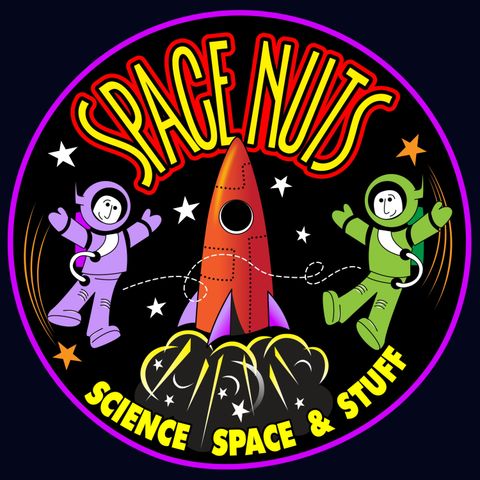31 OCT 2024 · Space Nuts - #465-466 Plus
Join Andrew Dunkley and Professor Fred Watson in this captivating episode of Space Nuts, where they explore the future of Fred Watson Watson's career, groundbreaking lunar missions, and the latest revelations from Space explorations. From the announcement of Artemis 3 landing sites to intriguing findings from the asteroid Ryugu and Saturn's moon Titan, this episode is packed with cosmic insights and engaging discussions.
Episode Highlights:
- The Future of Fred Watson: Discover the exciting changes in Fred Watson Watson's career as he transitions from his role as Australia's astronomer at large to a new position at a Sydney university. Learn how this move might enhance his influence in the field of astronomy.
- Artemis 3 Landing Sites: NASA has announced nine potential landing sites for the Artemis 3 mission, set to be the first human moon landing since 1972. Explore the strategic importance of these sites near the moon's south pole and the scientific potential they hold.
- Ryugu's Secrets: Delve into the recent analysis of samples from the asteroid Ryugu, revealing compounds that could have played a role in the emergence of life on Earth. Understand the significance of these findings in the context of our planet's history.
- Titan's Mysteries: Uncover the new research on Saturn's moon Titan, suggesting its surface features may rewrite planetary science. Learn about the unique conditions that make Titan a fascinating subject for studying climate change and potential life.
Listener Questions:
- Addressing intriguing listener queries, including the mystery of strange noises on spacecraft, alternative theories to the Big Bang, the gyroscopic effects of planetary rings, and the most impactful parts of the electromagnetic spectrum in astronomy.
For more Space Nuts, including our continually updating newsfeed and to listen to all our episodes, visit our https://www.spacenutspodcast.comFollow us on social media at SpaceNutsPod on facebook, X, YouTube, Instagram, Tumblr, and TikTok. We love engaging with our community, so be sure to drop us a message or comment on your favourite platform.
For more Space and Astronomy News Podcasts, visit our HQ at https://www.bitesz.com
Become a supporter of this podcast: https://www.spreaker.com/podcast/space-nuts/support.
Stay curious, keep looking up, and join us next time for more stellar insights and cosmic wonders. Until then, clear skies and happy stargazing.


